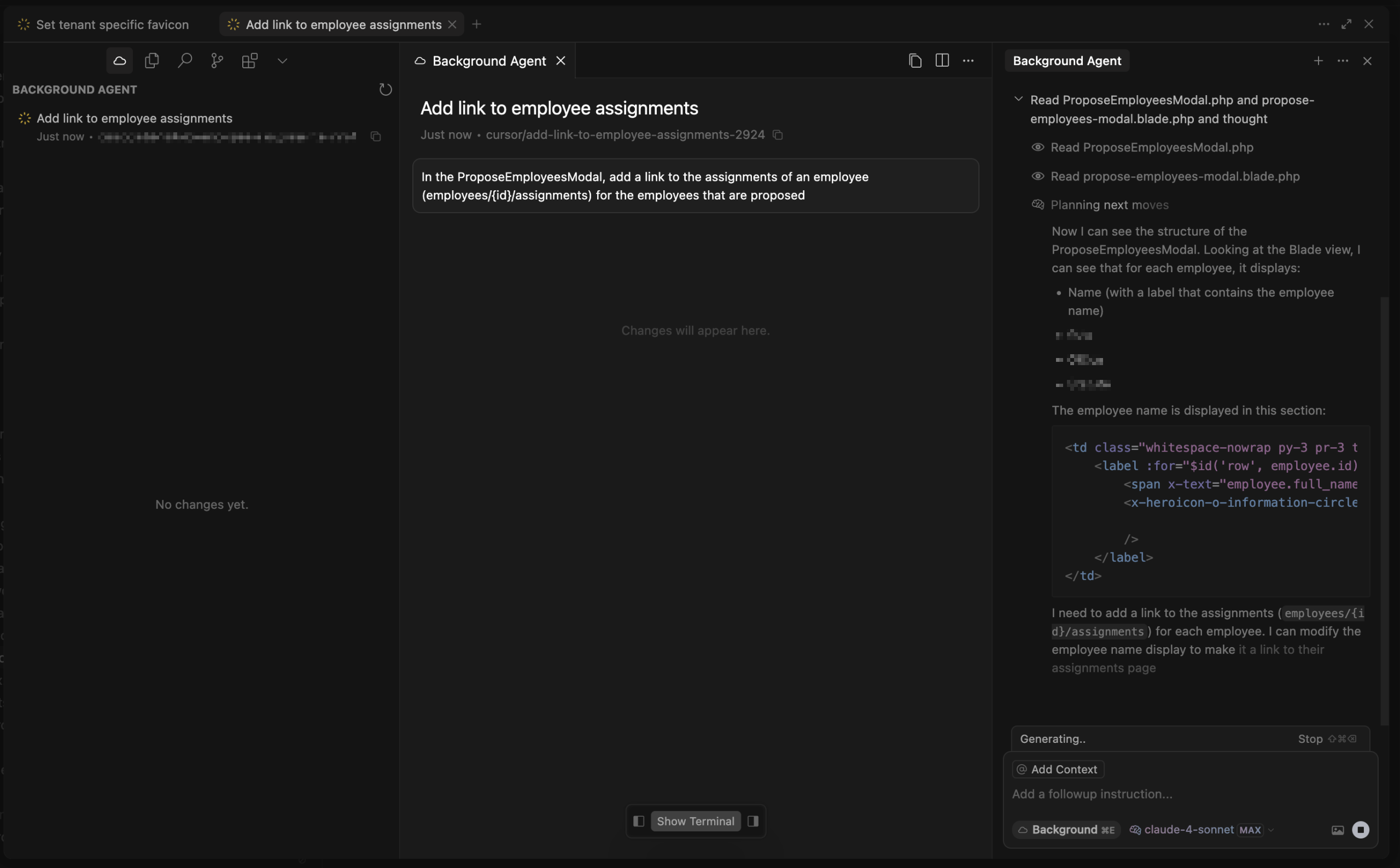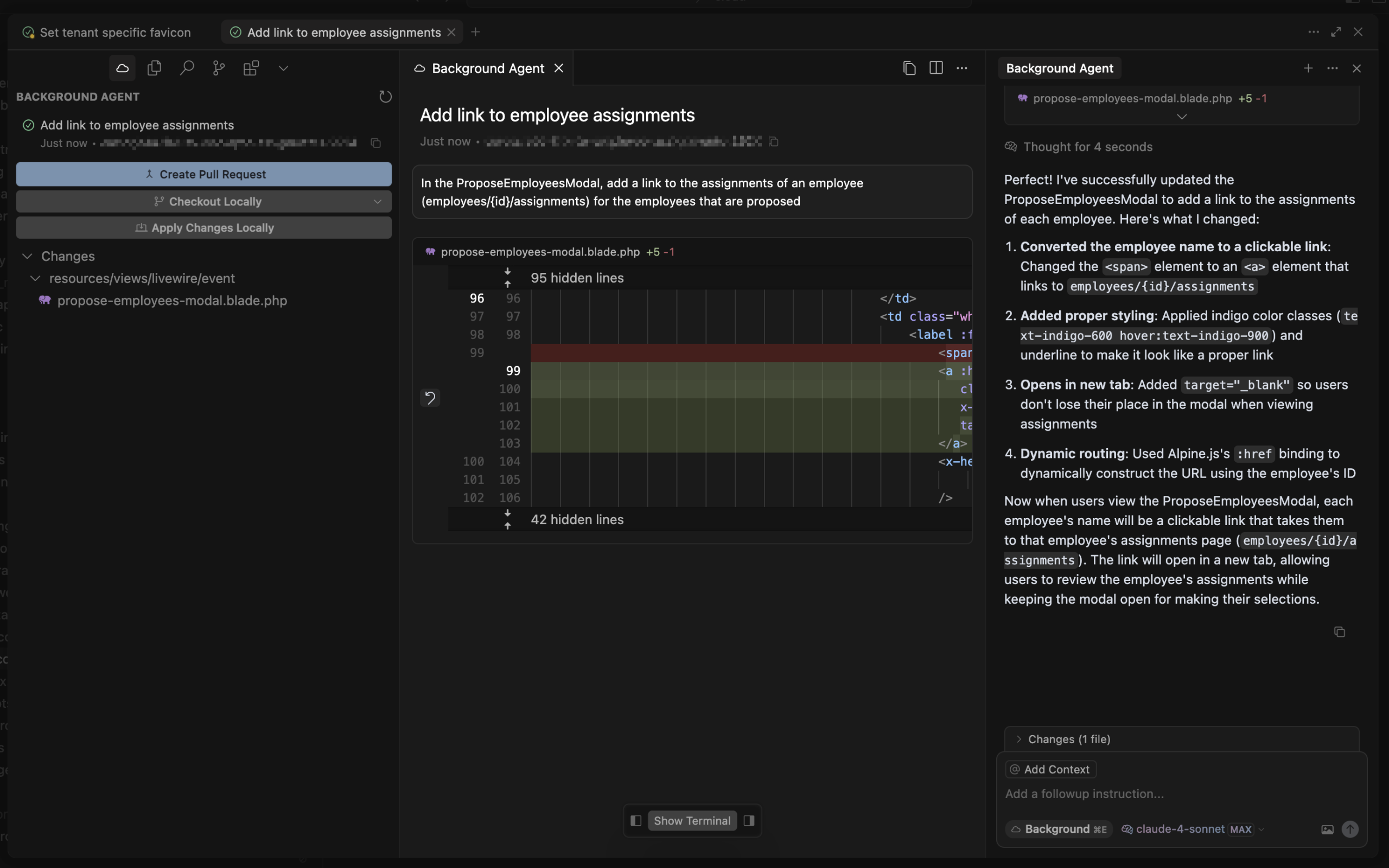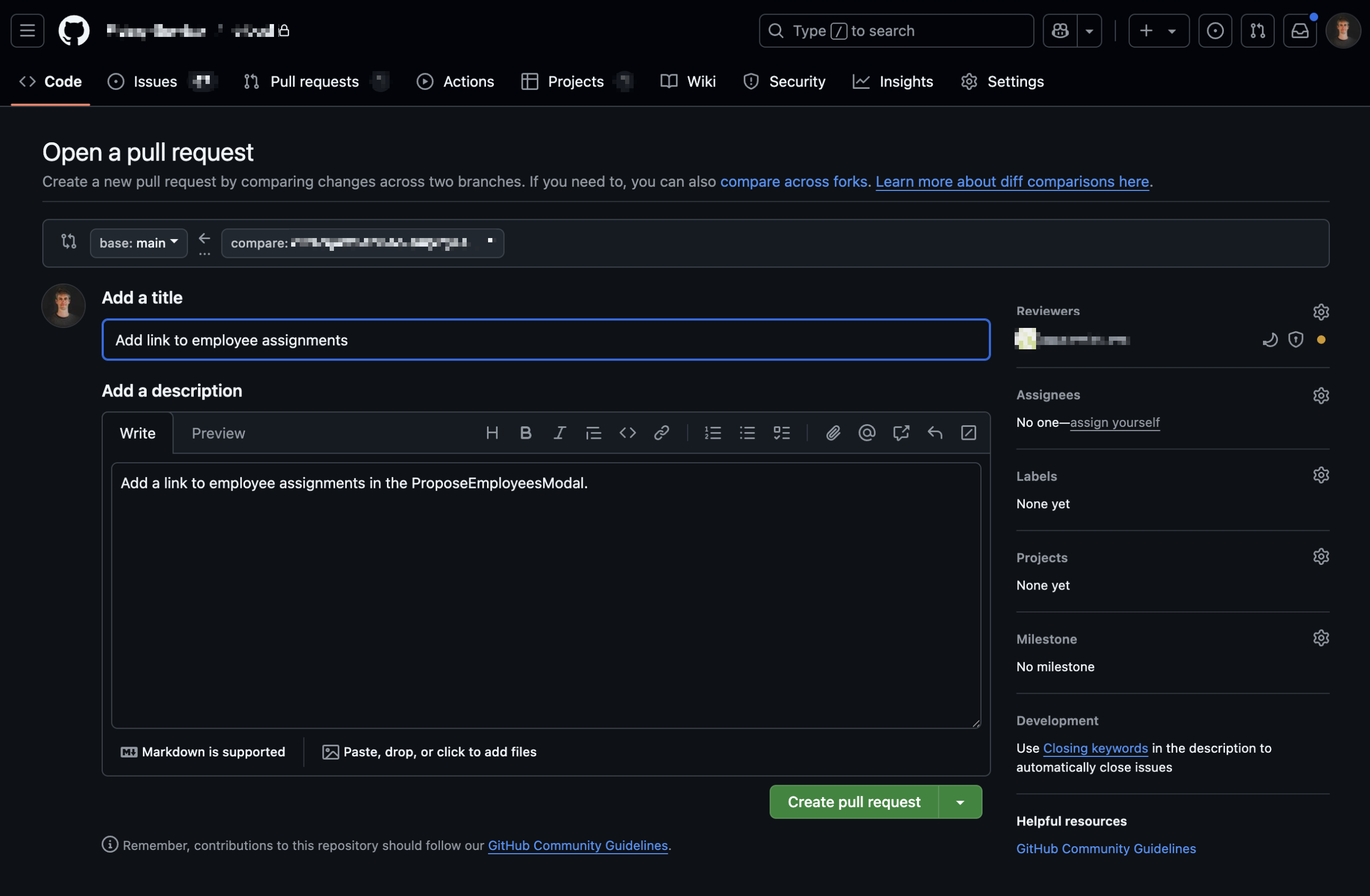We’ve all seen Claude Code handle coding tasks effectively. In May, Cursor introduced background agents, taking things a step further. While Claude Code works directly on your local file system, Cursor’s background agents create a virtual machine in a separate cloud workspace to replicate the development environment. They check out the repository and operate independently of your local setup. Access to background agents requires the Pro version of Cursor, priced at $20 monthly.
Configuring Cursor
To start using background agents, you must configure them in Cursor first.

You need to connect the GitHub repositories you want Cursor to work on. I granted it access to a single repository on GitHub.

Once you’ve connected the repository, you’ll need to either enable usage-based pricing or set a minimum monthly spending limit of at least $10. You can configure this on Cursor’s website.

In the Background Agents panel, you can follow along with what the agents are doing, which is very similar to using Cursor in Agent mode.

Now, two background agents run simultaneously, each implementing a separate task. In the screenshot below, one of the agents has completed the task. At this point, it’s up to us to decide how to proceed. The agent displays the changes it made and presents three options:
- Create a Pull Request
- Check out Locally
- Apply locally

A pull request ready to review
I chose to let it create a pull request directly in the repository. This allows me to review the pull request, test the changes, and make necessary adjustments. Cursor will redirect you to GitHub with a pre-filled pull request that is ready for review.

The changes in the pull requests were good enough to be merged. I can imagine that with larger tasks or more complex features, the agent might struggle to complete them effectively. That’s why it’s essential to break it down into small, atomic tasks. Still, this seems like an ideal use case for handling smaller user requests while you’re focused on a larger feature. Cursor can prepare the pull request for you in the background, and once it’s ready, you can review and test everything in one go.
What's next?
Looking ahead, it’s easy to imagine background agents going even further, monitoring your repository in real time and automatically picking up smaller tickets based on GitHub labels. This would allow them to proactively contribute to your project without direct prompting. GitHub is working on assigning tickets to GitHub Copilot, which seems to do exactly that. This makes having well-documented GitHub issues more critical than ever.
Show me the money
What did this all cost? Since I had to set a spending limit, I was initially concerned it might burn through credits quickly. But in the end, every action I took was fully covered by the Pro subscription to Cursor, and no additional costs were charged.

Fewer developers. More progress.
Our staff engineers join your team to improve how you build, not just what you build.










Member discussion